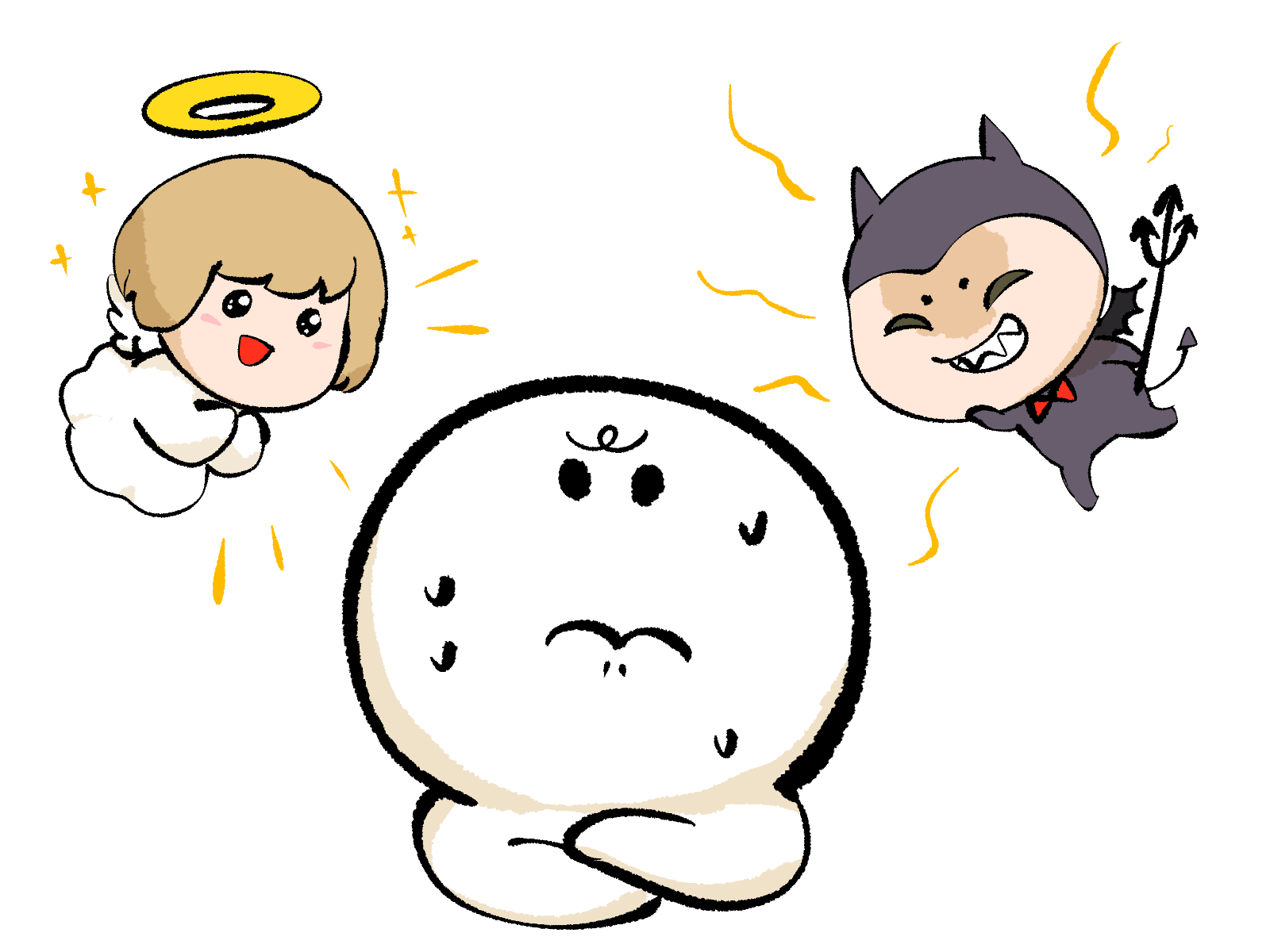Contents
What Is 'Psycho-Pass 2'?
 Imagine a world where your every thought and emotion can be measured, judged, and used to determine your place in society. Psycho-Pass 2, the highly anticipated sequel to the original Psycho-Pass anime, takes us back to this dystopian future. As the second installment in the series, it builds upon the dark and intricate world established in the first season, diving deeper into its complex themes of justice, morality, and societal control.
Imagine a world where your every thought and emotion can be measured, judged, and used to determine your place in society. Psycho-Pass 2, the highly anticipated sequel to the original Psycho-Pass anime, takes us back to this dystopian future. As the second installment in the series, it builds upon the dark and intricate world established in the first season, diving deeper into its complex themes of justice, morality, and societal control.
At the center of this season is Akane Tsunemori, now leading as the main Inspector of Division One. Having grown from her experiences in the first season, Akane is more resolute and determined, yet still grappling with the moral dilemmas posed by the Sibyl System—a near-omniscient AI that governs society by assessing the mental states of its citizens. Her journey in this season focuses on navigating her role as a protector of the law while questioning the system she enforces.
Psycho-Pass 2 is a must-watch for fans of dystopian sci-fi and psychological thrillers. Its gripping storyline keeps you on the edge of your seat, while its philosophical undertones challenge viewers to reflect on questions of free will, justice, and humanity’s reliance on technology. Whether you’re intrigued by the high-tech crime-solving or the ethical debates that lie beneath, this season offers something for everyone.
Unlike many sequels, Psycho-Pass 2 doesn’t shy away from experimenting with its narrative. With a new antagonist and even more intricate conspiracies, it’s a season that rewards close attention and critical thinking. If you enjoyed the first season’s blend of action and thought-provoking questions, you’ll find yourself fully immersed in the tension and drama of Psycho-Pass 2. It’s not just a continuation—it’s an escalation of everything that made the original so compelling.
Plot Overview: Challenging the Sibyl System
 The second season of Psycho-Pass plunges deeper into the moral and systemic flaws of the Sibyl System, the all-encompassing AI that governs society by monitoring citizens’ mental states. At the center of this narrative is Akane Tsunemori, an Inspector who has grown into a confident leader since the events of the first season. Now, she faces unprecedented challenges as new threats emerge that shake the very foundations of Sibyl’s authority.
The second season of Psycho-Pass plunges deeper into the moral and systemic flaws of the Sibyl System, the all-encompassing AI that governs society by monitoring citizens’ mental states. At the center of this narrative is Akane Tsunemori, an Inspector who has grown into a confident leader since the events of the first season. Now, she faces unprecedented challenges as new threats emerge that shake the very foundations of Sibyl’s authority.
This season introduces Kirito Kamui, a cunning and enigmatic antagonist whose motives go beyond mere chaos. Kamui is on a mission to expose and dismantle the Sibyl System, believing it to be fundamentally unjust. His methods, however, are brutal and unorthodox, forcing Akane and her team into a relentless pursuit to stop him. As the story unfolds, Kamui’s actions raise profound questions about the morality of the system and the sacrifices made to maintain order.
The narrative masterfully intertwines gripping crime investigations with philosophical depth. Each case brings Akane closer to uncovering the cracks in the Sibyl System, while also testing her own beliefs about justice and humanity. The high-stakes action sequences are perfectly balanced with slower, thought-provoking moments that invite viewers to reflect on the price of a seemingly perfect society.
What makes this storyline so compelling is its ability to create nuanced conflicts. Kamui isn’t just a villain—he’s a complex character with a mission that, while extreme, forces both the characters and the audience to reconsider the role of artificial intelligence in governance. Can a system that calculates morality truly be fair? Or does the Sibyl System’s control come at too great a cost?
Akane’s journey in this season is equally captivating. Her determination to navigate the moral ambiguities of her role as an Inspector showcases her growth as a character, while her confrontations with Kamui highlight her inner struggle to reconcile duty and personal values.
Ultimately, Psycho-Pass 2 weaves an intricate tapestry of action, suspense, and ethical dilemmas. The season delves into questions that feel eerily relevant in today’s world, making it more than just a thrilling continuation of the series—it’s a thought-provoking exploration of power, control, and the human condition. Whether you’re drawn to the intense investigations or the weighty themes, this season will leave you questioning the nature of justice itself.
New Characters and Returning Faces
 In Psycho-Pass 2, familiar faces return while new characters step into the spotlight, adding fresh dynamics and complexities to the story. At the forefront is Akane Tsunemori, the protagonist whose evolution since the first season is nothing short of remarkable. Once a rookie struggling to reconcile her ideals with the harsh realities of her role, Akane now stands as a resolute and morally grounded Inspector. Her unwavering belief in justice and her ability to navigate the moral ambiguities of the Sibyl System make her a captivating and relatable character.
In Psycho-Pass 2, familiar faces return while new characters step into the spotlight, adding fresh dynamics and complexities to the story. At the forefront is Akane Tsunemori, the protagonist whose evolution since the first season is nothing short of remarkable. Once a rookie struggling to reconcile her ideals with the harsh realities of her role, Akane now stands as a resolute and morally grounded Inspector. Her unwavering belief in justice and her ability to navigate the moral ambiguities of the Sibyl System make her a captivating and relatable character.
Joining the cast is Mika Shimotsuki, a young and ambitious Inspector who brings a stark contrast to Akane. Mika’s rigid adherence to the Sibyl System and her skepticism of Akane’s methods create tension within the team, offering a thought-provoking exploration of differing perspectives on justice and authority. As Mika’s character develops, her journey reflects the struggles of blindly trusting a flawed system and grappling with the consequences of such faith.
The season also introduces the enigmatic Kirito Kamui, a villain unlike any the team has faced before. Kamui’s calm demeanor and calculated actions make him a compelling and unpredictable antagonist. Far from being a one-dimensional character, Kamui’s motivations are rooted in a desire to expose the flaws of the Sibyl System, raising questions about whether his actions are entirely villainous or driven by a greater sense of justice.
Returning characters, such as the loyal and skilled Enforcers, play a pivotal role in the narrative. Their dynamics with Akane provide depth and emotional weight to the story. The bond between Akane and her Enforcers, particularly Nobuchika Ginoza, who has transitioned from Inspector to Enforcer, highlights the complexities of their roles within the Sibyl System. Each interaction sheds light on the characters’ struggles, loyalties, and evolving relationships.
The mix of returning and new characters keeps the narrative fresh and engaging. Akane’s clashes with Mika, her intellectual battles with Kamui, and her camaraderie with the Enforcers all contribute to a story that’s as much about personal growth and moral dilemmas as it is about high-stakes crime investigations. Together, these characters bring depth and humanity to the dystopian world of Psycho-Pass 2, making it a season that’s both thrilling and thought-provoking. Whether you’re a returning fan or new to the series, these characters will draw you into the heart of the story, leaving you eager to uncover their fates.
Themes: Justice, Freedom, and the Cost of Control
 Psycho-Pass 2 dives deep into thought-provoking themes that challenge our understanding of justice, freedom, and societal order. Set in a dystopian future where the Sibyl System determines the moral worth of individuals, the series raises questions about the fragility of justice in an authoritarian system. Is justice truly just when it's enforced by an omnipotent AI? Or does it become a tool of oppression, sacrificing individual freedoms for collective stability?
Psycho-Pass 2 dives deep into thought-provoking themes that challenge our understanding of justice, freedom, and societal order. Set in a dystopian future where the Sibyl System determines the moral worth of individuals, the series raises questions about the fragility of justice in an authoritarian system. Is justice truly just when it's enforced by an omnipotent AI? Or does it become a tool of oppression, sacrificing individual freedoms for collective stability?
One of the season's most prominent themes is the ethical implications of artificial intelligence in governance. The Sibyl System operates with the promise of a crime-free society, but its methods are far from infallible. By judging individuals based on their psychological states, it marginalizes those who don’t fit its rigid criteria. Kirito Kamui, the season’s antagonist, forces the audience to confront these flaws as he exposes the system’s inability to account for the complexities of human morality. This theme resonates strongly in an era where AI and data-driven systems increasingly influence real-world decisions.
Another critical theme is the cost of personal freedom versus societal order. The Sibyl System prioritizes collective safety over individual rights, creating a society where compliance is mandatory, and dissent is punished. Through Akane Tsunemori’s journey, the series explores the emotional and moral toll of living in such a tightly controlled environment. Her attempts to uphold justice within the confines of an unjust system reflect the tension between maintaining order and preserving freedom.
These themes aren’t just relevant within the fictional world of Psycho-Pass—they echo contemporary societal debates. As modern governments and corporations grapple with issues like mass surveillance, algorithmic bias, and privacy erosion, the questions posed by the series feel increasingly urgent. How much control should we give to technology? Where do we draw the line between safety and personal liberty?
Psycho-Pass 2 doesn’t offer easy answers, but that’s what makes it so compelling. It invites viewers to think critically about the systems we rely on and the compromises we make for the sake of security. The themes of justice, freedom, and control are woven seamlessly into the narrative, making the series not just a gripping dystopian thriller, but also a mirror to our own world. By challenging the audience to reflect on these issues, Psycho-Pass 2 remains relevant long after the credits roll, ensuring its place as one of the most thought-provoking entries in the sci-fi genre.
Why 'Psycho-Pass 2' Deserves Your Attention
 Psycho-Pass 2 raises the stakes from the first season, delving into even darker and more intricate territory. While the first season introduced viewers to the dystopian world governed by the Sibyl System, the second season takes this foundation and challenges it at every turn. The tone is notably grittier, with heightened moral dilemmas and more visceral confrontations that leave a lasting impact.
Psycho-Pass 2 raises the stakes from the first season, delving into even darker and more intricate territory. While the first season introduced viewers to the dystopian world governed by the Sibyl System, the second season takes this foundation and challenges it at every turn. The tone is notably grittier, with heightened moral dilemmas and more visceral confrontations that leave a lasting impact.
One of the most significant shifts in Psycho-Pass 2 is its exploration of the flaws within the Sibyl System. The story takes a bold approach by exposing these imperfections and examining their ripple effects on society. This gives the second season a weightier, more reflective tone compared to its predecessor. The introduction of Kirito Kamui as a morally ambiguous antagonist amplifies the tension, pushing Akane Tsunemori and her team to question their roles as enforcers of a potentially unjust system.
Fans have had mixed reactions to this darker direction. Many praise the season for its ambitious storytelling, particularly its willingness to tackle complex themes like justice, freedom, and the ethics of artificial intelligence. Akane’s development as a strong and morally grounded Inspector has also garnered widespread acclaim. On the other hand, some viewers have critiqued the season’s pacing and character development, arguing that certain arcs feel rushed compared to the meticulous buildup of the first season. These differing perspectives only highlight how deeply the series resonates with its audience, sparking thoughtful discussion and debate.
If you’re drawn to stories that challenge your perspective on morality and governance, Psycho-Pass 2 offers an experience that’s both thrilling and intellectually engaging. The high-stakes plot, layered character dynamics, and philosophical depth make it more than just a crime drama—it’s a narrative that encourages viewers to reflect on the systems that shape their own lives.
Whether you’re a returning fan eager to see how Akane’s journey unfolds or a newcomer intrigued by the premise, Psycho-Pass 2 is a season that demands your attention. Its thought-provoking themes and gripping storyline ensure that it’s not just a continuation of the series, but an essential chapter in the Psycho-Pass universe. Dive into this dystopian world, and prepare to question everything you thought you knew about justice and control.



